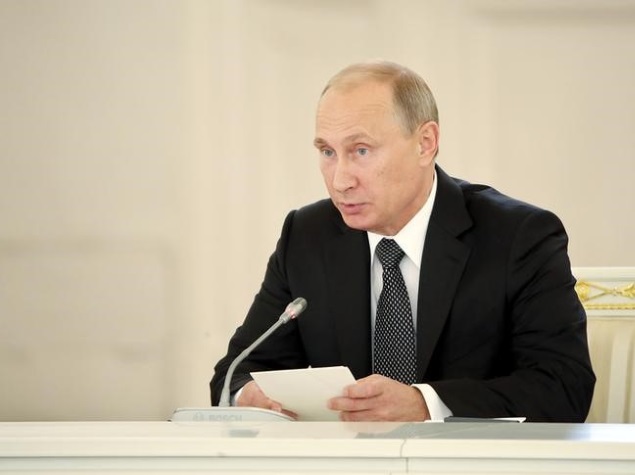Kremlin Wants to 'Protect Russian Cyberspace From Unpredictable West'
Advertisement

Russia is considering measures to protect its cyberspace from the "unpredictable" West, President Vladimir Putin's spokesman said on Friday after a newspaper said Moscow was contemplating unplugging the Internet during protests or war.
The respected business daily Vedomosti, citing industry sources, said that Putin will convene Monday a meeting of the country's Security Council to discuss possible restrictions on the Russian cyberspace the last forum for free expression in the country.
Vedomosti said authorities were contemplating measures to unplug Russia from the global Web in emergency situations such as major protests or military hostilities.
Putin's spokesman Dmitry Peskov confirmed the Security Council meeting would take place but declined to discuss its agenda.
(Also see: Putin Says Russia Not Waging War on Internet Freedom)
He said authorities were not planning to disconnect Russian cyberspace from the global web but needed to take measures to protect the country from the "unpredictable" West.
Advertisement
"Taking into account the complete unpredictability of the United States and European Union, Russia is taking measures to ensure its own security," Putin's spokesman Dmitry Peskov told AFP.
"Security measures for the Russian Internet are constantly discussed at various levels and at various ministries taking into account the unpredictability of our foreign partners," he added.
Advertisement
Russia not 'disconnecting itself'
Asked whether Russia was preparing measures that would allow officials to unplug the Russian segment from the global Internet, Peskov said:
"This is a question for other countries, first and foremost the United States. Considering the unpredictability of their actions we should be ready for anything.
Advertisement
"We are not talking about Russia disconnecting itself."
With mainstream media firmly under Kremlin control, social media and Internet news sites have over the past months been critical outlets for reporting the possible involvement of Russian troops in the Ukraine conflict and broader discussions about the crisis.
Citing several communications providers, Internet firms and non-governmental organisations, Vedomosti said several more meetings next week involving senior officials will address "the work of the Russian segment of the Internet in emergency situations."
Authorities are planning to adopt measures "strengthening the sovereignty of the Russian segment of the World Wide Web" that could include the powers to unplug Russia from the Web in special circumstances such as major rallies or military hostilities, the newspaper said citing sources.
Officials would like to have the measures in place by early next year, the newspaper said.
The communications ministry declined immediate comment.
Experts said authorities might face technical challenges as unlike China, Russia is firmly integrated into the global Web.
China is one of the countries which most actively blocks politically-sensitive information.
While Putin enjoys popular support, with his approval ratings boosted by Russia's takeover of Crimea from Ukraine in March, the danger of mass unrest is not lost on the Kremlin.
The Russian economy, which is already teetering on the verge of recession, is reeling from ever more stringent Western sanctions over Moscow's alleged support for separatists in eastern Ukraine.
Washington and Brussels have introduced several rounds of sanctions that are the toughest punitive measures since the Cold War.
Authorities have already introduced tough curbs on Russian cyberspace, including a law requiring Internet companies to store all personal data of Russian users at data centres in the country.
Social networking sites like Facebook and Twitter, which do not have offices in Russia, have become a vital resource for the country's beleaguered opposition.
For the latest tech news and reviews, follow Gadgets 360 on X, Facebook, WhatsApp, Threads and Google News. For the latest videos on gadgets and tech, subscribe to our YouTube channel. If you want to know everything about top influencers, follow our in-house Who'sThat360 on Instagram and YouTube.
Advertisement
